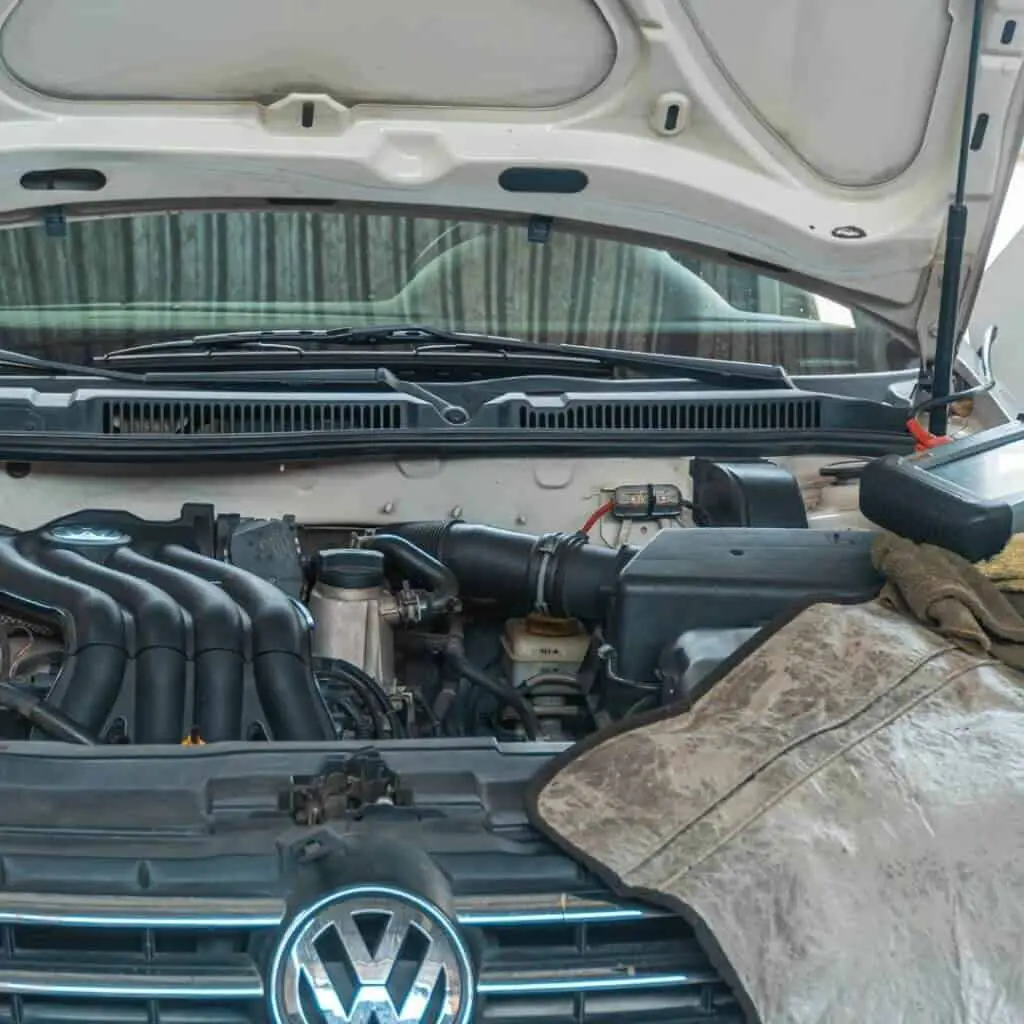Cars are often outfitted with a proprietary system that helps with the handling of a vehicle. The BMW cars have utilized the xDrive system for this purpose. The xDrive system has been around for quite a while and has been refined quite a bit. This time around, to have better information on the model you own, we will recount BMW xDrive problems.
BMW xDrive pros and cons

The xDrive is classified as an all-vehicle system focused on better car handling. This leads to a mix of positives and negatives for our car’s functionality.
Pros
- Car runs much better on snow and wet roads
- Off-road driving is much easier with the xDrive
- Better traction and grip on the road
Cons
- Costs extra
- Makes the car heavier
- Negatively affects fuel efficiency
BMW xDrive reliability
One of the biggest concerns of any system or part of care is its reliability. The reliability affects how much we can rely on the said aspect of the vehicle.
The lack of reliability can lead to more dangerous roadside driving but what it affects the most is maintenance. An unreliable system will need frequent checks and have certain issues occurring more commonly.
Highly unreliable cars will lead to costly repairs and a situation where the car’s benefits are overshadowed by the effort needed to keep it functional. The reliability of BMW xDrive is important because it tells us whether the cons of having it will be more prevalent in our experience with the system due to faulty systems. [1]
Is BMW xDrive reliable?

The xDrive system is heavily present in the functional aspect of the BMW cars. No matter the series of BMW you are driving, this system is current and aims to make any surface a joy to go through.
Your vehicle will rely on this system to make sharp turns and ease any fundamental issues. That’s why reliability becomes such a key component of this subject.
Thankfully, issues with xDrive are few and far between. The system’s reliability is up to the BMW standards, meaning that the problems are more isolated cases than consistent struggles of the system. While fixing the system is extremely pricey, it will rarely come into play.
Many reports claim the xDrive system is working quite well even after the 100,000 miles mark has been reached, often showing little issue to the users.
However, it has been reported that potential issues with the xDrive systems will usually accompany transfer cases.
These problems can appear as soon as 30,000 miles in and usually come in by 50,000 miles. So be careful with transfer cases, as they could cost you far more than you initially pay.
BMW xDrive problems

While xDrive is a reliable system, there are still issues that may crop up around it. The system itself will provide ample improvements to your driving experience and stand the test of time, but it doesn’t mean that there are no problems that could come your way.
Some issues are frequently associated with the xDrive, and we will review them to give an overview of what you may face.
Oil leaks
Among the most common issues one may face with the xDrive system, and BMWs in general, are oil leaks. Oil leaks have been present for quite a while now and remain one of the most frequently occurring problems.
Furthermore, an oil leak may lead to further troubles within our system as it spills oil across the rest of the mechanical components of our car, eventually leading to potential engine failure.
There are many treatments one may employ for oil leaks, but their initial appearance is bound to cause a bit of extra annoyance for the owners. What you should aim to do is confirm whether a leak is happening as soon as you suspect it, reducing any potential problems in the long run.
The leakage will most frequently happen in BMW’s xDrive system due to a failing fuel pump. However, it is possible to get oil leaks from your valve cover gasket being improperly shut.
Timing chain issues
Yet another issue we may see is timing chains malfunctioning. Again, this problem is common with older models with the xDrive system. While it isn’t impossible to encounter it with newer cars, it is an issue that the manufacturer has taken care of and time to reduce the chance of timing chain issues happening.
Most issues reported in relation to the timing chain stem from them skipping on sprockets, interfering with the proper functioning of crankshafts and camshafts. As you may imagine, the knock-on effect also happens here, usually causing extra problems on top of the already existing ones we have to handle.
This will also increase the cost of fixing the entire system as time passes. That’s why a quick reaction to resolving such problems is advised. [2]
Symptoms of such issues include unusual noises while idling, and the engine may feel rattling beneath the hood. Additionally, the car may overall seem a lot rougher in function when idling. This includes both noises, movement, and even smell, depending on how troublesome the issue has become.
Another telltale sign has more to do with the wear and tear of the chain rather than its displacement, but the two may coincide in symptoms, this one being metal shavings in the oil. These shavings can further convolute our car’s operational process as they endanger our car with further foreign elements in the system.
Fuel system failure
Problems continue with fuel system failure being a very real threat to our BMW’s functionality. Such issues usually stem from a failed fuel pump. The way our car gets the energy to operate is through fuel consumption, and when the pump responsible for compressing the fuel fails, we can quickly note quite a few heavy symptoms are also occurring.
Among these, loss of acceleration, as well as braking problems, are the most common. The mix of these two is dangerous for any driver and road. Even if you are a slow driver, the sudden loss of acceleration could get you rear-ended by a car coming up behind. Brakes being even slightly unresponsive at the wrong time could be an even bigger issue.
Thankfully, these problems should become apparent soon after driving the car with the present. Especially when it comes to acceleration, as the difficulty of gaining speed is always a warning sign to a driver. The concern should be dealt with immediately as weak operation of your fuel system can have it to suffer long-term effects.
Engine cooling system
With all the other issues, cooling doesn’t lag far behind. Cars usually have their temperature managed by engine cooling systems in order to avoid potential fires or malfunction due to high stress on the car. Unfortunately, with it malfunctioning, we risk the parts around the engine heating up far more than they should as well. In some cases, this can quickly lead to overheating and even light a fire under our hood.
The problems will often be caused by a coolant leak or a faulty water pump. Replacing coolant isn’t too hard, nor is it identifying the issue but finding the cause and location of the leak is quite a different concern. However, a faulty water pump is something we will need a deeper look into the car by a professional to be sure. [3]
xDrive problems between different series
With the number of various models and series of BMW cars, it’s no wonder that various issues crop up. The frequency of specific issues depends on the series. Let’s check the most common issues among some of the more popular types of BMWs.
BMW 3 Series xDrive problems

Oil leaks and timing chain problems are the most common among the BMW 3 series. The issue of oil leaks is present between many manufacturers and cars. While this does make it well documented, it still can cause serious issues.
So keep it in mind when buying a model of this series. As for the timing chain issues, you can expect them to occur eventually, especially with older models of this series.
BMW x1 xDrive problems

The most prominent issue with BMW X1 xDrive vehicles is coolant leaks. These leaks can be quite bothersome to deal with both due to their imminent effects and the potential evolution of the problem. The most basic of problems coolant leak brings is diminished cooling of the car, which then spirals into our engine overheating.
While it may not become immediately apparent, after some heating up, we’ll be able to note this problem. The effect on the entire car can go as far as causing a fire under the hood, so do be careful if you suspect a coolant leak. [4]
BMW xDrive problems
Even with a decent number of issues among various series of BMW cars, they are still exceptionally potent. The xDrive system is rather good at establishing great maneuverability no matter the style of drive you employ. Getting proper handling is much more important, especially with the number of dangerous situations this can prevent.
Related: BMW X5 Problems
xDrive vs Quattro

As expected, different manufacturers have different systems. It’s part of their identity and an important factor that helps enhance the driving experience. Now let’s see how two such systems compare to each other. First, we will be looking into BMW’s xDrive and Audi’s quattro system.
Similarities
Both of these systems are all-wheel drive, and their whole use is to let you take control of the road. The BMW’s xDrive offers an electronic drive system with a multi-plate clutch that adjusts the torque distribution every tenth of a second.
This means your car will quickly adapt to the road even under sudden changes in the surface you are driving on. For example, getting on a patch of ice will immediately adjust the car’s operation without wasting a second.
Audi quattro is also capable of providing all-wheel drive with a good feeling of control no matter the surface you are on. The torque sensing capabilities are also there, although slightly different.
Differences
The most important difference between the two is that Audi uses a manual system while BMW uses an electronic one. However, both of these still manage to achieve good car stability even if they approach it in different ways.
The quattro system makes sure to adjust each wheel’s functionality separately, making it capable of some rather unique changes in properties. On the other hand, xDrive automatically adjusts all the wheels by the same parameters.
Verdict
When the two are compared, it becomes apparent that it’s mostly a matter of preference and application. However, Audi’s quattro provides a nice extra bit of user agency by making it mechanical.
Read Also: BMW X3 Years To Avoid
Conclusion
The xDrive is a system that has been refined over the years owing to BMW’s focus on perfecting their cars. These fixes and changes have resolved some common issues with the cars but still left others behind. As a result, models with xDrive present will suffer some issues throughout their lifetime.
Of course, it’s still worth having xDrive in your car, especially with the few major advantages provided by the system.
While other manufacturers produce their own systems that can accent certain qualities of cars a bit better, xDrive is often different in functionality to achieve a complete comparison. These cars could last long if properly maintained.
Read Next: BMW N47 Engine Problems




